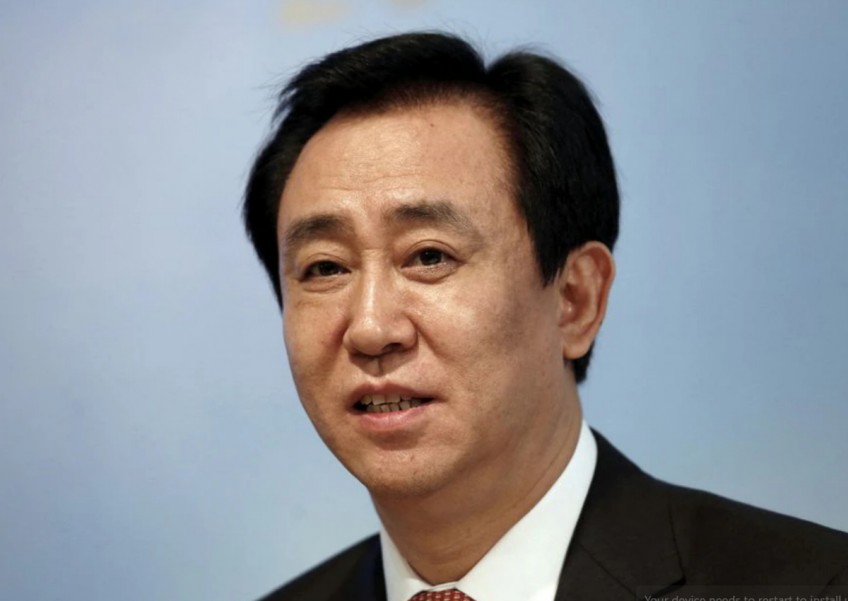Pressure piles on Evergrande with chairman under police watch, liquidation risk


HONG KONG — The chairman of China Evergrande Group has been placed under police surveillance, Bloomberg News reported on Wednesday (Sept 27), raising more doubts about the embattled developer's future as it also grapples with mounting prospects of liquidation.
Citing people with knowledge of the matter, the report said Hui Ka Yan, who founded Evergrande in 1996 in southern Guangzhou city, was taken away by police earlier this month and is being monitored at a designated location.
It was not clear why Hui was placed under residential surveillance, Bloomberg News said, adding the move was a type of police action that falls short of formal detention or arrest and does not mean Hui will be charged with a crime.
Reuters could not immediately verify the report. Evergrande, the police department in Guangdong province, whose capital is Guangzhou, and the public security ministry did not immediately respond to a Reuters request for comment.
Evergrande is the world's most indebted property developer and has been at the centre of an unprecedented liquidity crisis in China's property sector, which accounts for roughly a quarter of the world's second-largest economy.
Once China's top-selling developer, Evergrande's financial crisis became public in 2021 and since then it and a string of its peers have defaulted on their offshore debt obligations amid slowing home sales and fewer new avenues for fundraising.
The reported move of Hui being under surveillance comes as its offshore debt restructuring plan, the key to its survival amid a stifling cash crunch, looks set to falter and the prospects of it being liquidated gather momentum.
Reuters reported on Tuesday that a major Evergrande offshore creditor group was planning to join a liquidation court petition filed against the developer if it does not submit a new debt revamp plan by the end of October.
That plan comes after the company rattled markets on Sunday with its announcement that it could not issue new bonds as part of its debt restructuring plan because of a regulatory investigation into its main Chinese unit, Hengda Real Estate.
Hengda, in a separate filing on Monday, said that it had failed to pay the principal and interest on a four billion yuan (S$749 million) bond due by a Sept 25 deadline.
Shares in Evergrande were up 1.3 per cent in afternoon trade in the Hong Kong market on Wednesday, while an index tracking Hong Kong-listed mainland developers was little changed from its previous close.
The latest woes for Evergrande come as investors are also focused on another major Chinese developer, Country Garden, which is facing a new bond coupon repayment deadline on Wednesday.
The US$40 million (S$54.7 million) coupon, with a 30-day grace period, is tied to an eight per cent, US$1 billion dollar bond that matures in January and is the latest payment challenge facing Country Garden, as the developer strives to avoid default.
The country's No.1 private developer, whose financial woes worsened the property sector outlook and prompted Beijing to unveil a raft of support measures in the last few weeks, scrambled to successfully dodge defaults this month.
Offshore creditors widely expect Country Garden to delay Wednesday's coupon payment, while making use of the grace period to come up with plans to restructure all of its offshore debt.
A Country Garden spokesperson did not immediately respond to a Reuters request for comment.
"The fall of industry stalwarts in China's property space has been alarming, to say the least," said Fiona Kwok, Asian Fixed Income portfolio manager, First Sentier Investors.
"Until Chinese regulators come through with stimulus significant enough to inject optimism into the property market and increase property sales, default risk remains high among private and mixed ownership developers."
ALSO READ: Once worth $63b, WeWork shares near zero after bankruptcy warning